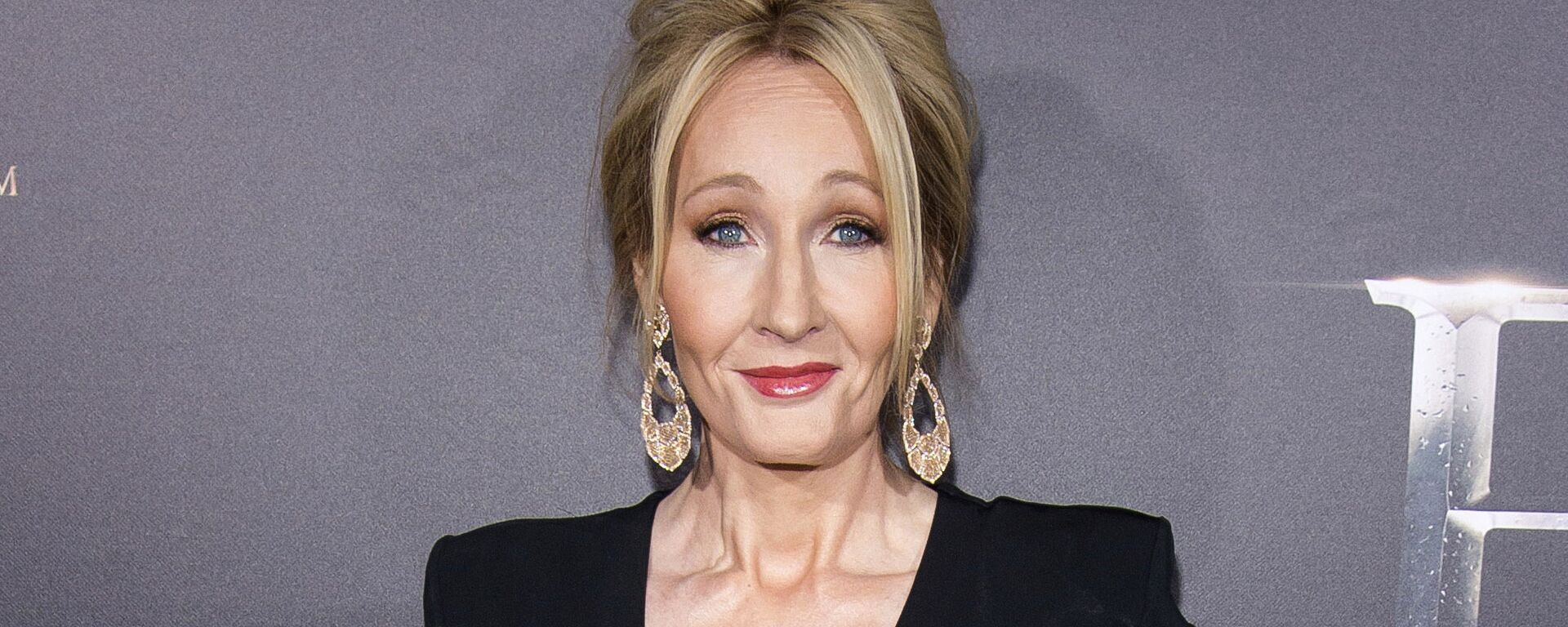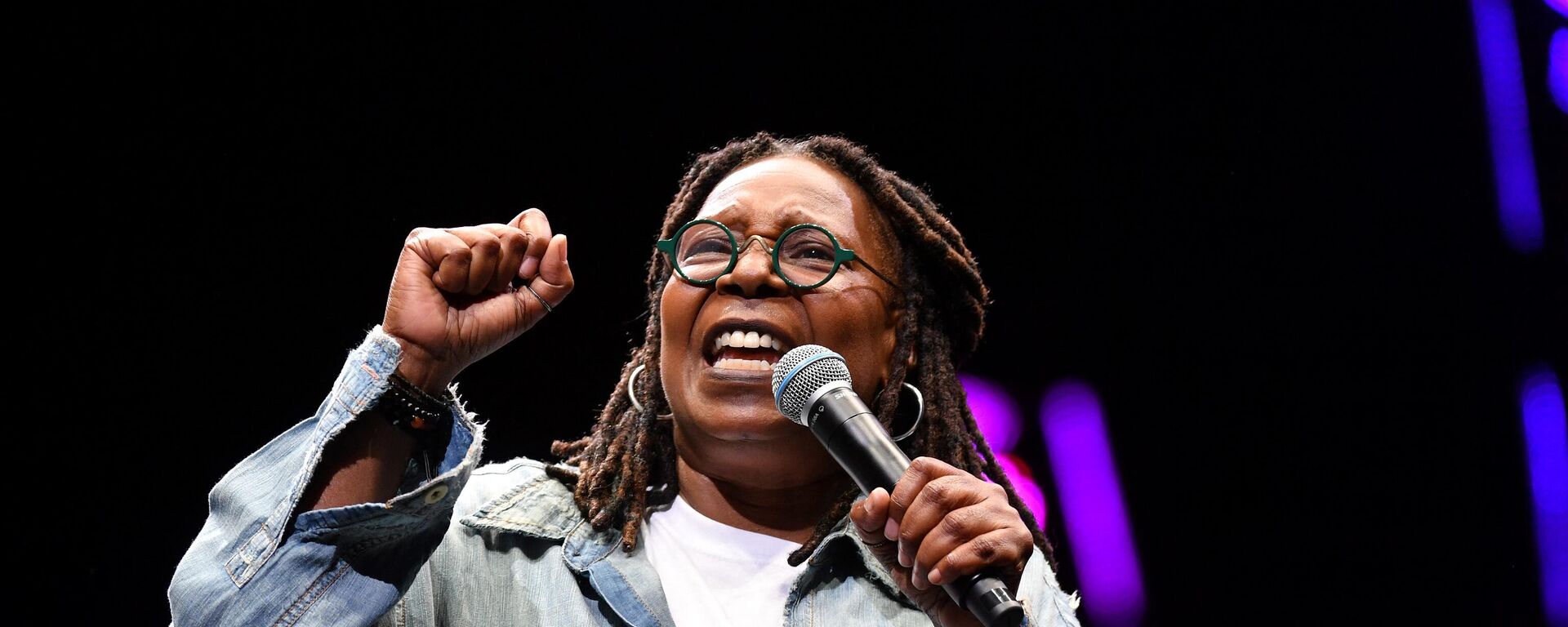https://sputnikglobe.com/20220307/jk-rowling-slams-scotlands-proposed-gender-recognition-law-as-harming-most-vulnerable-women-1093653543.html
J.K. Rowling Slams Scotland's Proposed Gender Recognition Law as Harming 'Most Vulnerable Women'
J.K. Rowling Slams Scotland's Proposed Gender Recognition Law as Harming 'Most Vulnerable Women'
Sputnik International
World-famous author J.K.Rowling was accused of "transphobia", with a movement to "cancel" her launched in 2018 after the Harry Potter writer liked a tweet that... 07.03.2022, Sputnik International
2022-03-07T09:18+0000
2022-03-07T09:18+0000
2022-03-07T09:18+0000
jk rowling
harry potter
https://cdn1.img.sputnikglobe.com/img/07e5/07/14/1083419237_0:0:2845:1600_1920x0_80_0_0_6402e6d3698cd2d18760d5cc156d190e.jpg
J.K. Rowling has lambasted Scotland's recently published Gender Recognition Reform Bill, claiming it will “harm the most vulnerable women” if passed. Scotland’s Gender Recognition Reform Bill is set to amend the 2004 Gender Recognition Act, introducing new criteria for applicants wishing to obtain legal recognition via a Gender Recognition Certificate (GRC). The proposed legislation would simplify how people legally change the sex on their birth certificate. For example, there would be no need for those wishing to change gender to provide medical and psychiatric reports. It would also lower the age at which people can apply to change their gender from 18 to 16, with the individual required to have lived permanently in their chosen gender for three months, instead of the current mandatory two years. Rowling, 56, tweeted that the law that the devolved government of First Minister of Scotland and Leader of the Scottish National Party (SNP) Nicola Sturgeon was trying to pass would “harm the most vulnerable women in society: those seeking help after male violence/rape and incarcerated women.”She added that statistics already demonstrated that imprisoned women were “far more likely to have been previously abused.” The acclaimed author slammed Social Justice Secretary Shona Robison, who expounded on the bill in Scotland’s parliament last week. Cabinet Secretary Robison had told MSPs there was no evidence that “predatory and abusive men have ever had to pretend to be anything else to carry out abusive and predatory behavior.” Rowling voiced her support for author and journalist Susan Dalgety for her “most searing, heartfelt and courageous response yet” to Miss Robison's “astounding claim.” Dalgety, herself the victim of sexual abuse as a child, branded the statement by Robinson “crass.” Writing in The Scotsman, Dalgety lashed out as what she called a “cynical attempt” to justify the government’s Gender Recognition Reform Bill, set to allow men to change their legal sex simply by affirmation.Previously, J.K.Rowling has been accused of "transphobia" since publishing an essay on her website in July 2020. In it, she had argued that biological sex was real. She had also liked a post on Twitter that referred to trans women as “men in dresses," and received flack for mocking an article online that used the words "people who menstruate" instead of "women". Rowling also blasted the decision by Police Scotland to log in male rapists as women if they identify themselves as such. In response to her opinions, the author revealed earlier that “hundreds of trans activists have threatened to beat, rape, assassinate and bomb me.” ‘Self-Identification’ Without ‘Gatekeeping’ While changes to the Bill have been hailed as a way to “streamline” the process of transgender individuals legally changing the sex on their birth certificate, critics argue the “self-identification” will fundamentally alter who can access women-only services. They underscore that the mulled changes are already prompting a policy shift, for example in single-sex wards. Speaking on behalf of one of the most active critical groups, Susan Smith of For Women Scotland, was cited by The Guardian as saying: Polling by Savanta ComRes for the BBC showed that while 57% were in favour of making the process of obtaining a certificate easier, certain specific proposals enjoyed less support. Thus, 40% were in favour of self-identification, and 38% against it. Another 44% opposed reducing the amount of time spent “living in the acquired gender”, as compared with 37% in favour
https://sputnikglobe.com/20211229/another-harry-potter-star-weighs-in-on-criticism-of-jkrowling-over-trans-views-1091881381.html
https://sputnikglobe.com/20220202/whoopi-and-the-others-what-celebrities-got-in-trouble-for-public-statements-1092679555.html
Sputnik International
feedback@sputniknews.com
+74956456601
MIA „Rossiya Segodnya“
2022
News
en_EN
Sputnik International
feedback@sputniknews.com
+74956456601
MIA „Rossiya Segodnya“
Sputnik International
feedback@sputniknews.com
+74956456601
MIA „Rossiya Segodnya“
jk rowling, harry potter
J.K. Rowling Slams Scotland's Proposed Gender Recognition Law as Harming 'Most Vulnerable Women'
World-famous author J.K.Rowling was accused of "transphobia", with a movement to "cancel" her launched in 2018 after the Harry Potter writer liked a tweet that referred to trans women as “men in dresses" and subsequently mocked an article online that used the words "people who menstruate" instead of "women".
J.K.
Rowling has lambasted Scotland's recently published Gender Recognition Reform Bill, claiming it will “harm the most vulnerable women” if passed.
Scotland’s Gender Recognition Reform
Bill is set to amend the 2004 Gender Recognition Act, introducing new criteria for applicants wishing to obtain legal recognition via a Gender Recognition Certificate (GRC).
The proposed legislation would simplify how people legally change the sex on their birth certificate. For example, there would be no need for those wishing to change gender to provide medical and psychiatric reports. It would also lower the age at which people can apply to change their gender from 18 to 16, with the individual required to have lived permanently in their chosen gender for three months, instead of the current mandatory two years.
Rowling, 56, tweeted that the law that the devolved government of First Minister of Scotland and Leader of the Scottish National Party (SNP) Nicola Sturgeon was trying to pass would “harm the most vulnerable women in society: those seeking help after male violence/rape and incarcerated women.”
She added that statistics already demonstrated that imprisoned women were “far more likely to have been previously abused.”

29 December 2021, 09:23 GMT
The acclaimed author slammed Social Justice Secretary Shona Robison, who expounded on the bill in Scotland’s parliament last week. Cabinet Secretary Robison had told MSPs there was no evidence that “predatory and abusive men have ever had to pretend to be anything else to carry out abusive and predatory behavior.”
Rowling voiced her support for author and journalist Susan Dalgety for her “most searing, heartfelt and courageous response yet” to Miss Robison's “astounding claim.”
Dalgety, herself the victim of sexual abuse as a child,
branded the statement by Robinson “crass.” Writing in The Scotsman, Dalgety lashed out as what she called a “cynical attempt” to justify the government’s Gender Recognition Reform Bill, set to allow men to change their legal sex simply by affirmation.
“I have no idea why Shona Robison and her close friend and boss, Nicola Sturgeon, refuse to believe women when we say we fear the consequences of a law that redefines what it means to be female. I have no idea why trans campaigners and their allies call us bigots, transphobes, right-wing shills, when all we are doing is pointing out, as the Equality and Human Rights Commission did recently, that the Bill will affect women’s rights,” wrote Susan Dalgety.
Previously, J.K.Rowling has been accused of "transphobia" since publishing an essay on her website in July 2020. In it, she had argued that biological sex was real.

2 February 2022, 11:43 GMT
She had also liked a post on Twitter that referred to trans women as “men in dresses," and received flack for mocking an article online that used the words "people who menstruate" instead of "women". Rowling also blasted the decision by Police Scotland to log in male rapists as women if they identify themselves as such. In response to her opinions, the author revealed earlier that “hundreds of trans activists
have threatened to beat, rape, assassinate and bomb me.”
“They should have reflected on the fact that I've now received so many death threats I could paper the house with them and I haven't stopped speaking out,” said the author in a Twitter post in November 2021.
‘Self-Identification’ Without ‘Gatekeeping’
While changes to the Bill have been hailed as a way to “streamline” the process of transgender individuals legally changing the sex on their birth certificate, critics argue the “self-identification” will fundamentally alter who can access women-only services.
They underscore that the mulled changes are already prompting a policy shift, for example in single-sex wards.
Speaking on behalf of one of the most active critical groups, Susan Smith of For Women Scotland, was cited by The Guardian as saying:
“This is opening up gender recognition certificates to a whole new cohort of people, without gatekeeping, and there is huge public opposition to self-identification and the risk of people taking advantage of that.”
Polling by Savanta ComRes for the BBC showed that while 57% were in favour of making the process of obtaining a certificate easier, certain specific proposals enjoyed less support. Thus, 40% were in favour of self-identification, and 38% against it. Another 44% opposed reducing the amount of time spent “living in the acquired gender”, as compared with 37% in favour



